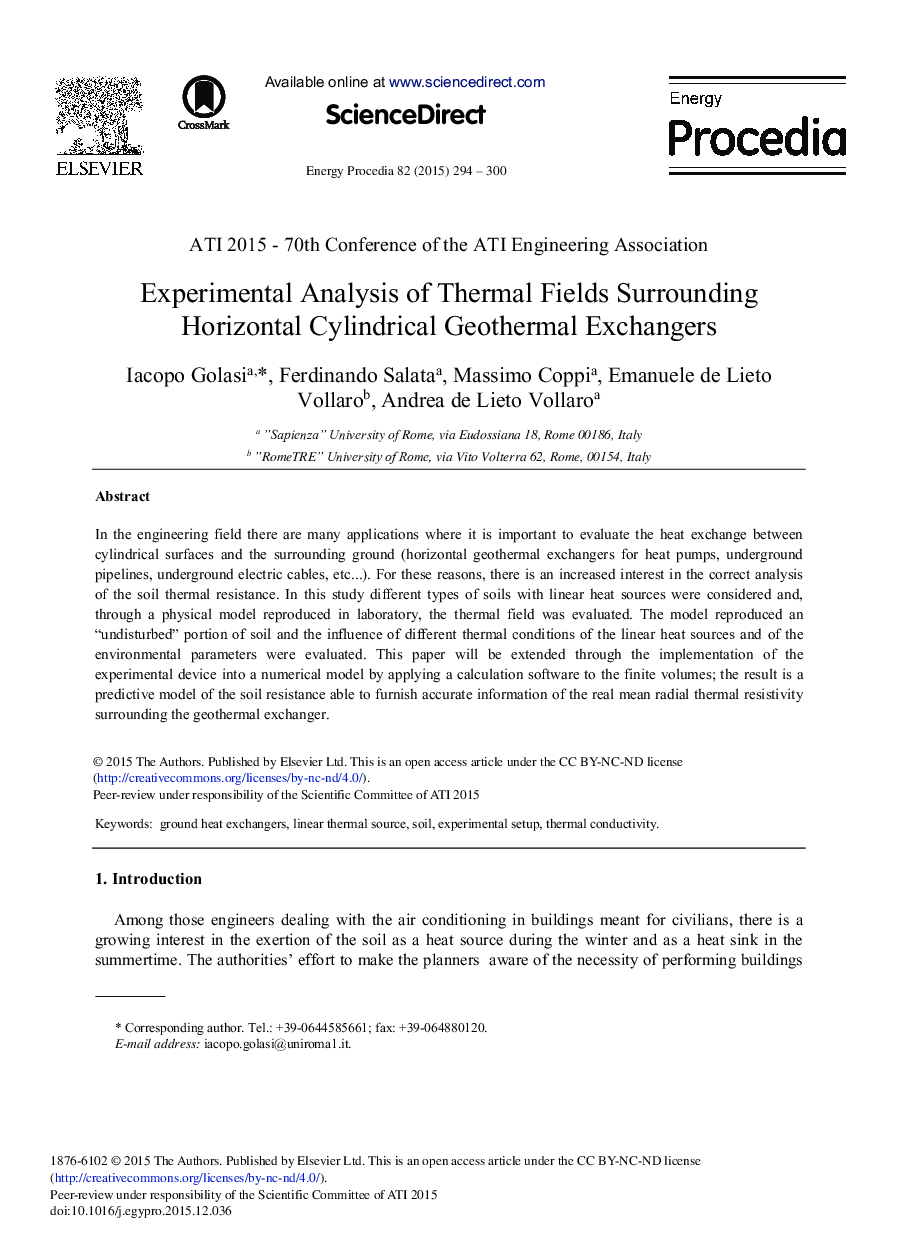| Article ID | Journal | Published Year | Pages | File Type |
|---|---|---|---|---|
| 1509071 | Energy Procedia | 2015 | 7 Pages |
In the engineering field there are many applications where it is important to evaluate the heat exchange between cylindrical surfaces and the surrounding ground (horizontal geothermal exchangers for heat pumps, underground pipelines, underground electric cables, etc...). For these reasons, there is an increased interest in the correct analysis of the soil thermal resistance. In this study different types of soils with linear heat sources were considered and, through a physical model reproduced in laboratory, the thermal field was evaluated. The model reproduced an “undisturbed” portion of soil and the influence of different thermal conditions of the linear heat sources and of the environmental parameters were evaluated. This paper will be extended through the implementation of the experimental device into a numerical model by applying a calculation software to the finite volumes; the result is a predictive model of the soil resistance able to furnish accurate information of the real mean radial thermal resistivity surrounding the geothermal exchanger.
